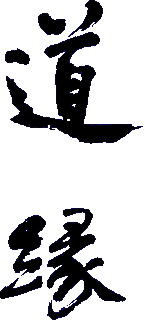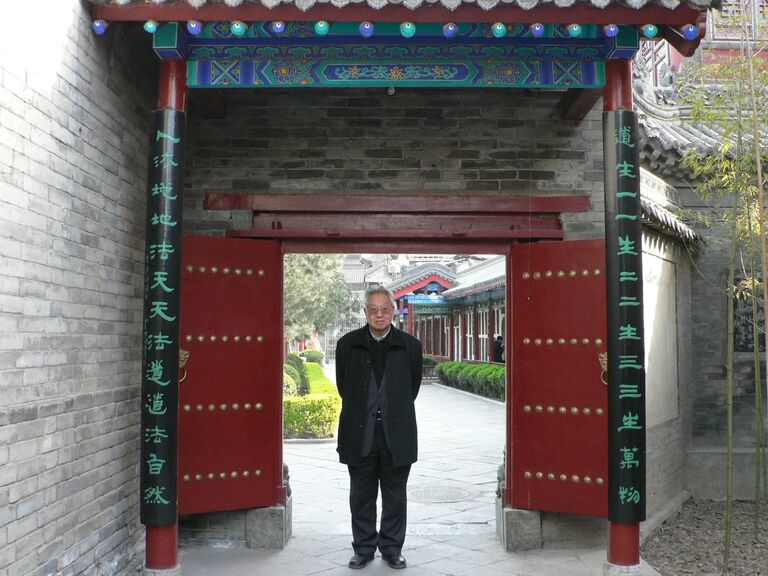Courses and training in qigong from the Daoist and Buddhist traditions
~ The school of Grandmaster Guo Bingsen ~
Teacher: Edith Guba
Guo Bingsen
Guo Bingsen taught Qigong in Europe from 1987 until the end of 2014. Besides founding the Dao Yuan School of Qigong, where he guided about 40 students through to Nei Jing Gong 3, the annotated new translation of the Dao De Jing by Lao Zi is his second late work.
He has practiced Taiji Quan for nearly 70 years, learned Nei Jing Gong and other forms of Qigong in the traditional way from his master. The latter had noticed him in a park and had observed him practicing Taiji Quan for a long time, until he finally approached him and invited him to his classes.
This master also allowed him to attend the classes of other masters who were teaching in the Chinese public at that time; sometimes he also gave him advice on how to practice these exercises to achieve their best result.
At the time of the opening of Qigong in China, the Qigong Society there introduced examinations to ensure the quality of teaching. Three certificates were awarded: Assistant, Master and Grandmaster. At that time, after profound teaching by his master, Guo Bingsen received the Grand Master certificate. He then worked for several years as an assessor for the Qigong Society, on whose behalf he assessed the quality of various forms of Qigong newly offered to the Chinese public at that time. This Qigong Society also sent him to Lu Xue Zhi to learn Fan Teng Gong from him: the Qigong Society intended to have this simple Qigong spread by Guo Bingsen, who was already qualified as a Grandmaster, for the benefit of the population. Subsequently, he conducted several courses 'Fan Teng Gong' and 'Energy Field', which were regularly attended by several hundred participants.
In 1987 he came to Europe for the first time - first to Lyon, then also to Paris. In Lyon he came into contact with Europeans who were interested in his Qigong. Previously, he had taught it exclusively to Chinese. For several years after his stay in France, he was invited by students to further visits - also to Switzerland (especially Geneva) - to teach. At that time he was still very conservative and only passed on the beginner levels of Qigong - both in China, and subsequently even more so in Europe.
Gradually the idea arose to give Europeans the opportunity to get to know his Qigong more deeply and in all its possibilities.
Together with Edith Guba he developed the systematic teaching and training program of the Dao Yuan School of Qigong. This school wants to contribute to make forms of traditional Qigong up to their upper levels known in Europe.
Of essential importance to the Dao Yuan School in this respect is that teachers do not distinguish themselves with their own skills, but teach in such a way that the students themselves can develop Qigong skills.
Despite - or because of - his desire to spread qigong in modern society, Guo Bingsen explicitly insists on teaching especially Nei Jing Gong exclusively within the framework of the Dao Yuan School. This is the only way to ensure the traditional quality of transmission.
Since the end of 2014, he no longer comes to the West in order to be able to concentrate entirely on his own practice.
His successor, who remains in regular contact with him, is his long-time master student Edith Guba.

